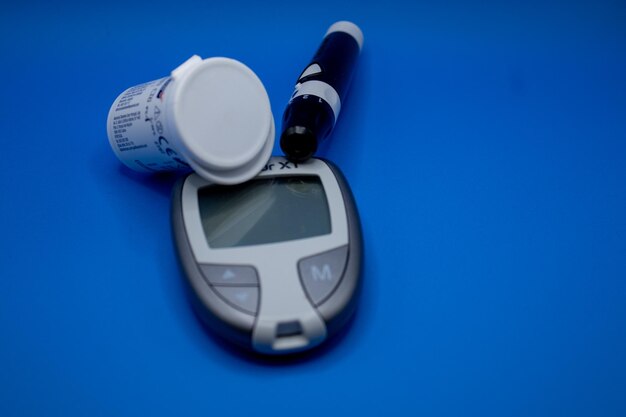Your Guide to How Many Americans Have Diabetes
What You Get:
Free Guide
Free, helpful information about Diabetes FAQ and related How Many Americans Have Diabetes topics.
Helpful Information
Get clear and easy-to-understand details about How Many Americans Have Diabetes topics and resources.
Personalized Offers
Answer a few optional questions to receive offers or information related to Diabetes FAQ. The survey is optional and not required to access your free guide.
Understanding America’s Diabetes Epidemic and Exploring Helpful Resources
Diabetes is an ongoing public health crisis in the United States, impacting millions of Americans. According to recent estimates by the Centers for Disease Control and Prevention (CDC), about 34.2 million Americans have diabetes, which is roughly 10.5% of the U.S. population. Of these, around 7.3 million are undiagnosed, unknowingly living with a condition that can lead to severe health complications if not properly managed. Understanding the scope of diabetes is crucial as it underscores the importance of accessible healthcare and supportive financial structures to aid those in need.
Why Diabetes Continues to Rise
Several contributing factors have driven the prevalence of diabetes, including increasing rates of obesity, sedentary lifestyles, and aging populations. Additionally, disparities in access to healthcare impact early diagnosis and management of diabetes, leading to a rise in complications related to untreated or poorly managed cases. The financial burden of diabetes care, including doctor visits, medications, and lifestyle adjustments, further complicates the situation for many families.
Navigating the Financial Implications
The financial implications of managing diabetes can be daunting. For many, the cost involves not only direct medical expenses but also lifestyle adjustments that may demand special dietary requirements, exercise regimens, and continuous monitoring tools. It's vital for those impacted to be aware of government aid programs and financial assistance options available to offset these costs.
Government Aid and Financial Assistance Programs
Medicaid and Medicare: These programs offer coverage for many diabetes-related expenses, such as preventive services, diabetic supplies, and necessary medications. Eligibility depends on age, income, and disability status.
Children's Health Insurance Program (CHIP): Provides health coverage to eligible children, covering diabetes screening and management as part of its comprehensive benefits.
Supplemental Security Income (SSI): Assists children and adults with disabilities, including those affected by diabetes, who have limited income and resources.
Debt Relief and Credit Solutions
Managing the cost of diabetes can lead to significant financial strain, making debt management an essential consideration. Resources that can help include:
Credit Counseling Services: These organizations provide advice on budgeting and managing existing debt, potentially consolidating outstanding bills at lower interest rates.
Medical Bill Advocates: Professionals who negotiate your medical bills, seeking reductions or payment plan arrangements to ease immediate financial burdens.
Educational and Supportive Resources
Knowledge is a powerful tool in diabetes management. Many programs exist to provide educational resources:
Diabetes Education Programs: Often covered by insurance, these programs teach self-care and management skills, significantly improving the long-term health outcomes for individuals with diabetes.
Community Health Workshops: Many communities offer free or low-cost workshops focused on diabetes awareness and management strategies.
Concluding Thoughts
As the prevalence of diabetes in America continues to rise, understanding the resources available is more crucial than ever. By leveraging these support systems, those affected can manage the condition more effectively while minimizing financial strain. Encouragingly, programs and resources are evolving to meet the needs of affected individuals and families, paving the way for better health outcomes and economic stability.
🎯 Key Resources for Financial and Educational Support
Medicaid/Medicare 🏥
- Coverage for preventive services and necessary diabetic supplies
CHIP 👧👦
- Provides coverage for children needing diabetes management
SSI 💵
- Financial assistance for disabled individuals with limited income
Credit Counseling 💳
- Budget advice and debt consolidation to manage diabetes costs
Medical Bill Advocates 📃
- Negotiate medical bills for cost reduction or payment plans
Diabetes Education Programs 📚
- Improve management through education, often insurance-covered
Community Workshops 🏘️
- Local health workshops focused on diabetes education
What You Get:
Free Diabetes FAQ Guide
Free, helpful information about How Many Americans Have Diabetes and related resources.

Helpful Information
Get clear, easy-to-understand details about How Many Americans Have Diabetes topics.

Optional Personalized Offers
Answer a few optional questions to see offers or information related to Diabetes FAQ. Participation is not required to get your free guide.


